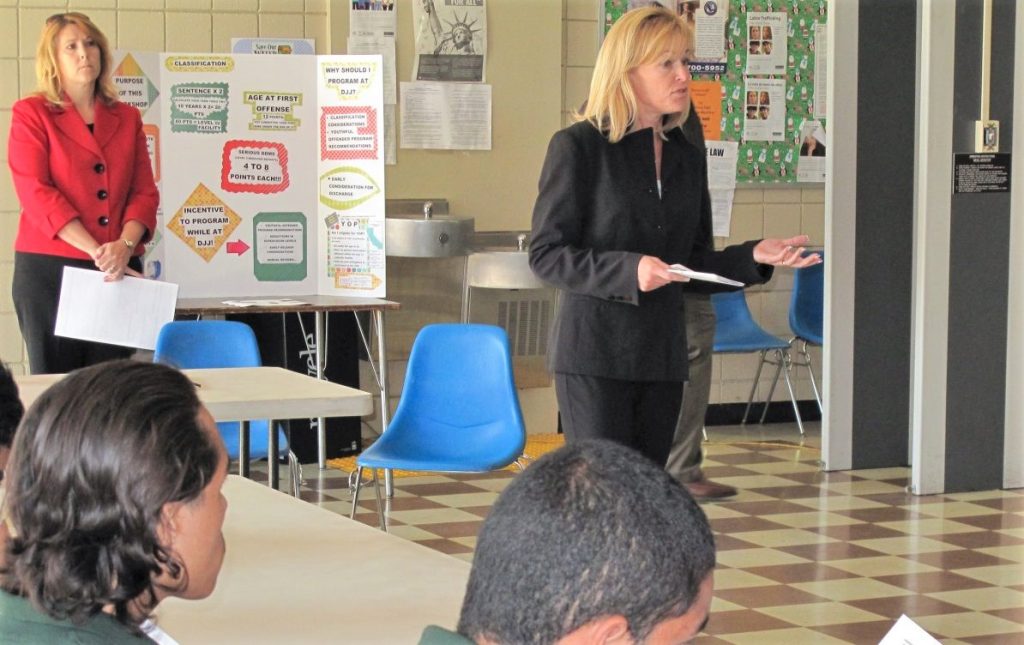(Editor’s note: The Youth Offender Program offers youth a chance to avoid the adult prison system. This story was published July 24, 2015.)
When Andrew was convicted of armed robbery at 17 years old, he had essentially joined the family business.
His two brothers and father were all gang members and convicted felons.
Andrew was sentenced to 13 years in prison, almost as long as he has been alive. Since Andrew is still 17, he will spend the first years of his sentence at the Division of Juvenile Justice (DJJ).
After aging out of DJJ, Andrew will be transferred to serve the rest of his term in the adult system.
Before July 1, 2015, Andrew potentially faced being transferred to a Level III (high security) prison based on his commitment offense. But, a new program aimed at diverting young offenders away from high-security prison yards in the adult system is hoping to change that.
The new Youthful Offender Program (YOP), established through an Assembly Bill and added to the California Penal Code, delegates a special classification committee to review cases of youth transferring to the adult system. Based on the youth’s merits, they could choose to place him in a lower-security prison yard. The goal is to keep youth away from more serious and violent criminal influences found at high-security level prisons.
This means those who qualify have more access to rehabilitative programs and a better environment to succeed in and outside prison.
Facing the prospect of spending his 20s in prison, Andrew realized this might be the beginning for a better life.
“I just want to break the cycle,” Andrew said.
Thirteen juvenile offenders from N.A. Chaderjian YCF, all 16 and 17 year olds, participated in a YOP workshop along with members of the CDCR’s Division of Adult Institutions (DAI), Fire Camps and Deuel Vocational Institution (DVI).
“This is a great opportunity for you to work within this new system that’s been put in place for you. Take advantage of what’s being offered now and during your time here at DJJ and beyond,” said N.A. Chaderjian Youth Correctional Facility (YCF) Re-Entry Coordinator Dainette Bowens.
“At DAI, we can’t justify you in a lower level if you have a series of rules violations,” explained Capt. Mike Masters with the Youthful Offender Program. “The key for you going to a Level I, II or III yard is keeping your nose clean at DJJ. You should take advantage of rehabilitation programs.”
Some of those treatment programs address violent and criminogenic behavior, sex-offender behavior, substance abuse and mental health. Also, supervisors and staff use communication techniques to motivate and encourage an open exchange of ideas and information.
The 13 youthful offenders were engaged in the conversation and had plenty of questions.
One asked, “My score right now is low to moderate. Can I improve that if I have good behavior the couple years I have left here at DJJ?”
“Let’s say I’m down for armed robbery, and I got eight years. I’ll have five when I get to an adult facility. Can I still be in a fire camp?” another asked.
“Can they transfer me to a fire camp closer to my home?” asked one young person.
Fire Camp Capt. Jorge Santana said, “They’re going to put you in a fire camp where you’re most needed. After six months, you could ask to move closer to home. If you’re working hard, and behaving, they may just approve the move.”
The last few minutes of the workshop were spent discussing the future. DVI Correctional Counselor Tracy Williams asked the youth what they wanted to be. Counselor, construction worker, chef, artist, truck driver were the answers.
“That begins today. It begins with your actions and how committed you are to changing your lives,” Williams told the young men.
By Joe Orlando, CDCR Public Information Officer

Read more rehabilitation stories.
Follow CDCR on YouTube, Facebook, X (formerly Twitter). Listen to the CDCR Unlocked podcast.
